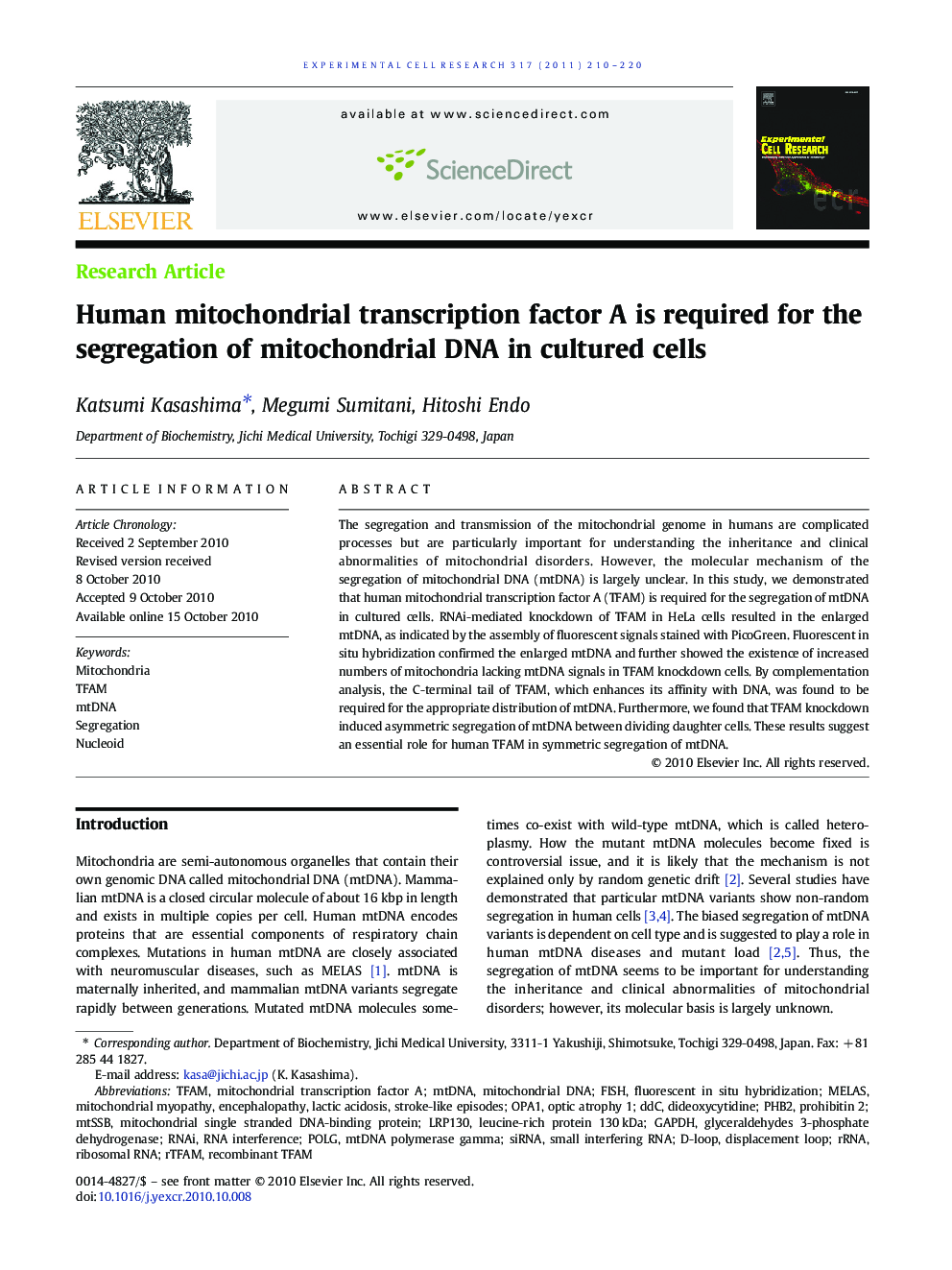| Article ID | Journal | Published Year | Pages | File Type |
|---|---|---|---|---|
| 2130981 | Experimental Cell Research | 2011 | 11 Pages |
The segregation and transmission of the mitochondrial genome in humans are complicated processes but are particularly important for understanding the inheritance and clinical abnormalities of mitochondrial disorders. However, the molecular mechanism of the segregation of mitochondrial DNA (mtDNA) is largely unclear. In this study, we demonstrated that human mitochondrial transcription factor A (TFAM) is required for the segregation of mtDNA in cultured cells. RNAi-mediated knockdown of TFAM in HeLa cells resulted in the enlarged mtDNA, as indicated by the assembly of fluorescent signals stained with PicoGreen. Fluorescent in situ hybridization confirmed the enlarged mtDNA and further showed the existence of increased numbers of mitochondria lacking mtDNA signals in TFAM knockdown cells. By complementation analysis, the C-terminal tail of TFAM, which enhances its affinity with DNA, was found to be required for the appropriate distribution of mtDNA. Furthermore, we found that TFAM knockdown induced asymmetric segregation of mtDNA between dividing daughter cells. These results suggest an essential role for human TFAM in symmetric segregation of mtDNA.
